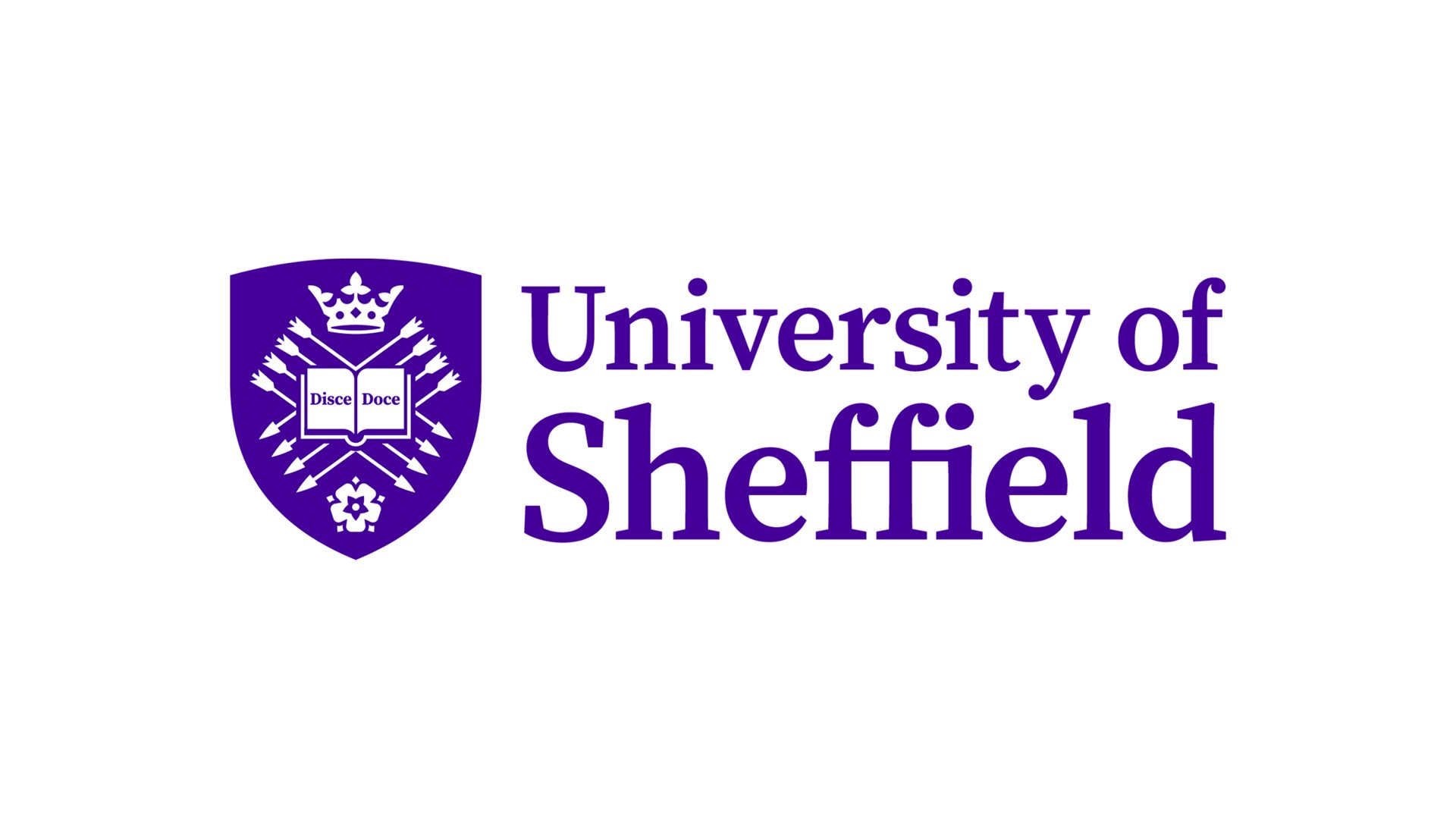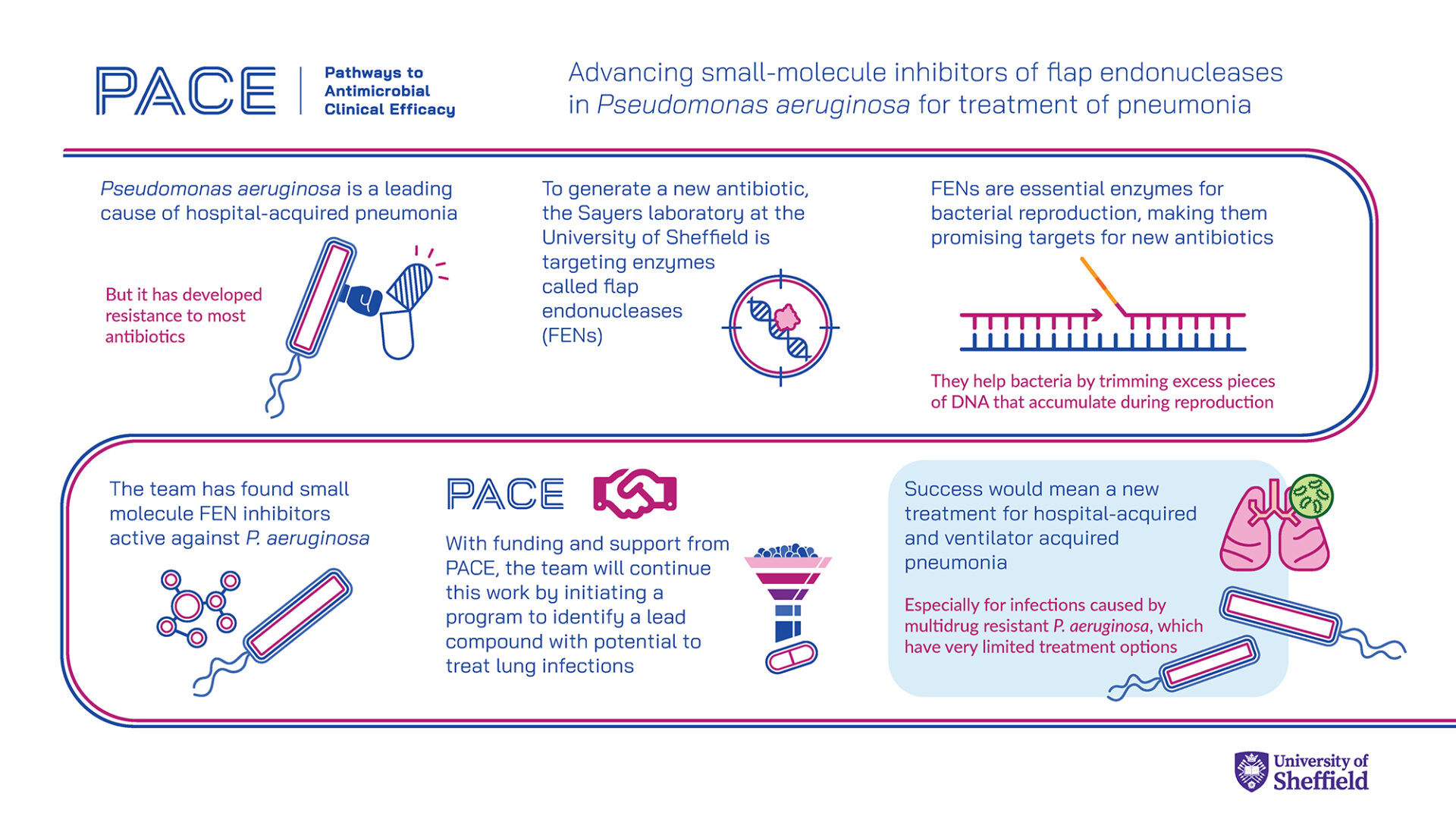
Advancing small-molecule inhibitors of flap endonucleases in Pseudomonas aeruginosa for treatment of pneumonia
Project title: Towards new drugs for a novel target in Pseudomonas aeruginosa
The Gram-negative bacterium Pseudomonas aeruginosa is a leading cause of hospital-acquired pneumonia but has developed resistance to most antibiotics. The Sayers laboratory at the University of Sheffield aims to tackle this by targeting a family of enzymes called flap endonucleases (FENs) with essential roles in DNA replication, repair and recombination.
The team has already developed selective, highly potent, rapidly bactericidal FEN inhibitors active against bacteria in the genus Neisseria, with MICs of <0.5 μg/mL. Work has started on translating this experience to P. aeruginosa, with the results of an initial biochemical inhibitor screen providing small-molecule hits with IC50 values down to 380 nM. One of these was capable of killing P. aeruginosa cells and had an MIC of ~8 μg/mL.
With funding and support from PACE, the team will initiate a hit-to-lead program, aided by X-ray structural studies of FEN–inhibitor co-complexes and an already-established biochemical assay. The outcome should be the demonstration of a proof-of-concept for the efficacy of these compounds in a physiological model of infection. Given the existing work on Neisseria, the novel mode-of-action and rapid bactericidal activity, low resistance frequencies are expected.
Success in this project will result in delivery of a series of compounds that can be progressed towards the treatment of hospital-and ventilator-acquired pneumonia caused by P. aeruginosa, for which patients currently have limited treatment options. By targeting an essential component of the bacterial reproductive cycle, resistance is much less likely to develop, and the rapid action should improve cure rates and result in shorter treatment periods.

Company Summary
The University of Sheffield’s mission is to deliver life-enhancing research, innovation and education that not only transforms the lives of its graduates, but shapes the world they live in. Their diverse community is made up of 30,000 students from 150 countries, 8,000 staff, including 1,500 of the world’s leading academics and over 300,000 alumni in 205 countries. Their research-led teaching inspires, enthuses and challenges a diverse community of outstanding students. Their graduates will be equipped to stand out as confident global citizens guided by strong values, ethics and standards, able to make meaningful contributions to society.
Their research and innovation will produce the highest quality outputs to drive intellectual advances and address global challenges. The University of Sheffield is a member of the Russell Group and is ranked within the Top 100 universities in the Times Higher Education World University Rankings 2025.
PACE is supporting the University of Sheffield with a project titled ‘Towards new drugs for a novel target in Pseudomonas aeruginosa’, advanced small molecule inhibitors of flap endonucleases in Pseudomonas aeruginosa for the treatment of pneumonia.
